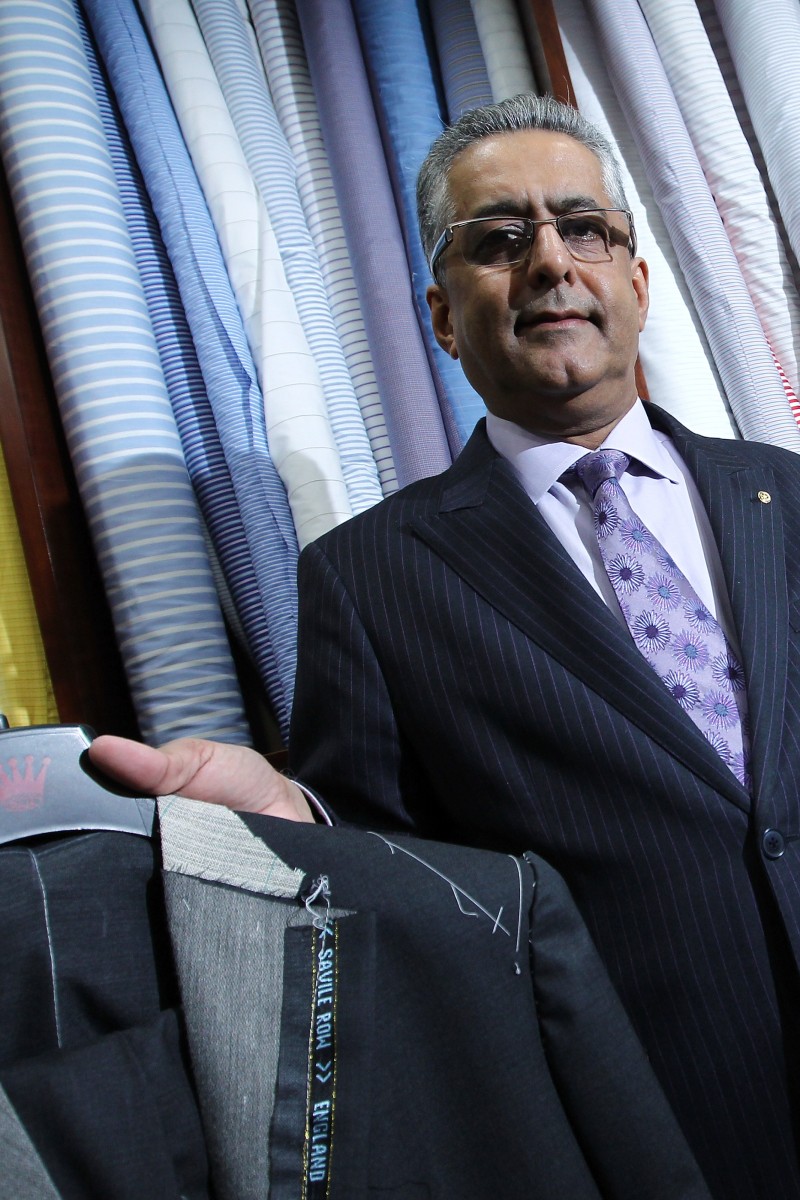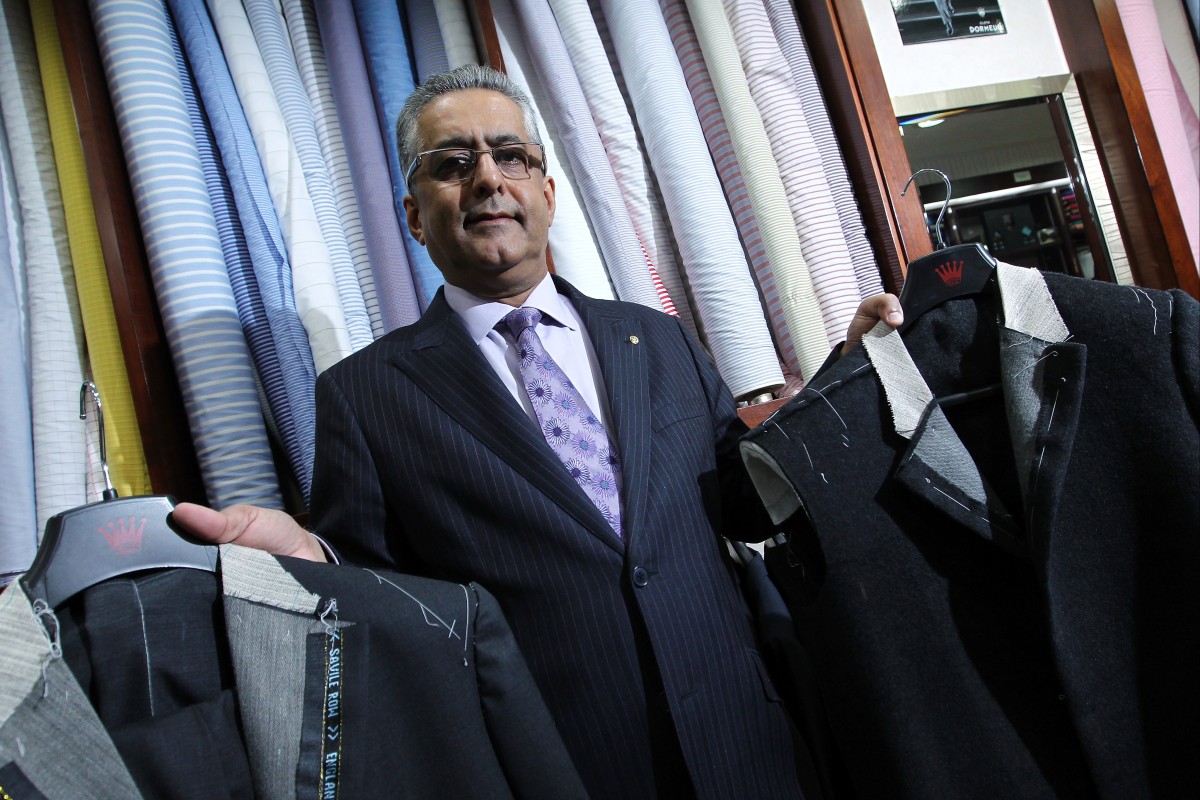
History of family-run tailor shops in Hong Kong’s Tsim Sha Tsui
Many of these businesses were started in the 1950s and 60s by immigrants from India and are passed down through the generations
 Raja Daswani runs Raja Fashions in Tsim Sha Tsui.
The tailor shop was started by his grandfather in 1957.
Photo: May Tse
Raja Daswani runs Raja Fashions in Tsim Sha Tsui.
The tailor shop was started by his grandfather in 1957.
Photo: May TseTsim Sha Tsui is known for its busy crowds, delicious food, and beautiful harbour view. It is also famous for suit tailor shops.
Many of these businesses are family-run. A significant number were started by families from India who opened their shops in the 1950s and 1960s.
Young Post spoke to two shops – Raja Fashions and Bobby’s Fashions – to learn more about their histories.
“Our business has grown because we have put in a lot of effort and a lot of love into it, and we serve a lot of people,” said 65-year-old Raja Daswani, who operates Raja Fashions. “There’s a lot of trust.”
New opportunities
Raja’s family moved to Hong Kong from Pune, India, in the early 1950s. His grandfather opened the shop in 1957, the same year Raja was born. He is the third generation to run the business.
Raja said his family opened a tailoring shop because they already “had a good understanding of clothing” and there was high demand: “The British military was in Hong Kong, and they needed a lot of clothes,” Raja said. “We had a lot of British personnel and expats from the UK coming to trade with China then. So there was a big demand because things were very expensive in the UK and not so expensive in Hong Kong.”
Over the years, the shop passed from his grandfather to his father to Raja, who became the boss at age 18.
Now, Raja’s children are also involved. His son, 29-year-old Prashant Daswani, had planned to work in the biomedical field. But a part-time job at a men’s suit store in the United States changed his mind.
“I enjoyed the family business a little bit more,” said Prashant. Prashant and his brother have helped update the shop’s operations for the modern era. They handle the company’s social media pages and online newsletters.
Of course, working with family can “make it 10 times more complicated”, Prashant said. Sometimes, he disagrees with his father and older brother.
“But they’re also family; they’re family before [anything],” he explained.
Secrets to success
Just a few minutes down the road is Bobby’s Fashions, run by brothers Bobby and Nick Daswani. They are related to the family that runs Raja Fashions and a few other tailors in Hong Kong.
Bobby’s Fashions opened in 1952. The brothers are the third generation to run the shop. They have been learning about the business since childhood when they used to help out after school.
“We used to go to the shop and do business. From there, we learned things ourselves,” said Bobby. He has worked in the store for 42 years.
While the shop has had its ups and downs – especially during the pandemic – Bobby said he was grateful to work alongside his brother.
“You can trust each other,” he said.
The secret to a long-running family business is simple: hard work, a willingness to learn and a good attitude. “You have to enjoy your business. Otherwise, you’re wasting your time,” Bobby said.
Of course, good customer service is also key: “We make sure our customers are happy, always,” Bobby said. “You know what we say: God makes you a man. Bobby will make you look like a gentleman.”
To test your understanding of this story, download our printable worksheet or answer the questions in the quiz below.
tailor 裁縫
a person who makes, repairs or fixes clothes
generation 世代
the people on one level of a family tree
demand 需求
the want or need for a product or service
operations 運作
activities involved in managing and running a business
